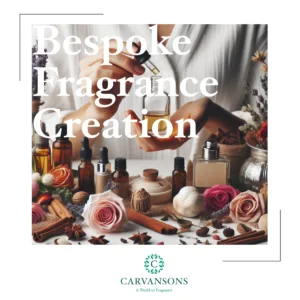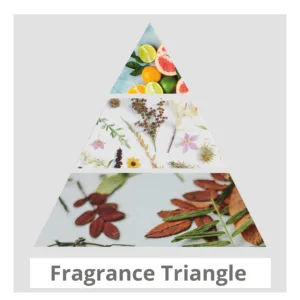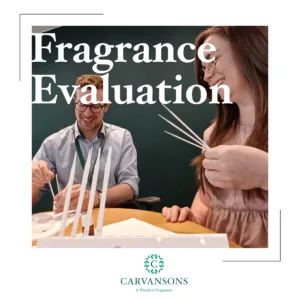Creating a new fragrance is like embarking on a sensory journey. Perfume designers draw inspiration from all around them – whether it’s a beautiful garden in bloom, a piece of art or even a fleeting emotion that lingers in the air. This initial inspiration serves as the spark that ignites the creative process.
In this week’s blog we follow the perfumery journey from the perspective of the perfumer. But in order to better understand the process we need to delve deeper into the history around perfume creation.
A Brief History of Perfume Creation
The art of perfume creation dates back to ancient Egypt, using aromatic resins to sweeten the smell of sacrificial offerings.
The Romans took it up a notch with their term ‘Per Fumum’, which basically means ‘through smoke’. The Arabs brought steam distillation techniques to the creation of essential oils and resins, which really elevated the art of perfume making. Fast forward to Italy and France, and Eau De Cologne was born, becoming a staple in perfumery. Grasse, the perfume capital of the world, also played a huge role in the development of fragrances.
The Science Behind Perfume Creation
The receptors in our noses pick up all these different scents which our brain then processes. Not only is our sense of smell important for detecting yummy food or stinky socks, but it’s also crucial for animals to communicate, sense danger and even taste their food. Scent is closely tied to memories and emotions. From perfumes and candles to cleaning products and even laundry detergent, scent plays a huge role in our daily lives.
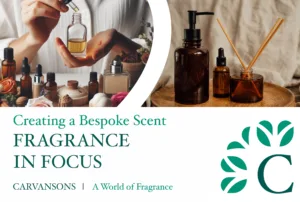 Interested in Creating your own Bespoke Fragrance?
Interested in Creating your own Bespoke Fragrance?
How is a Brand-New Fragrance Created?
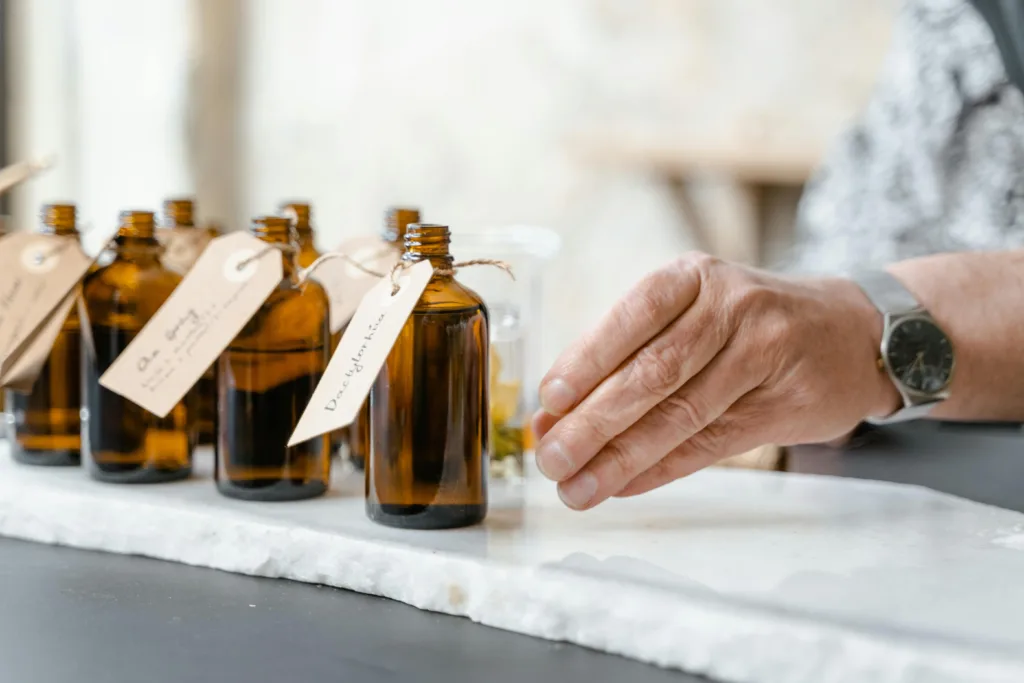
If we are starting from scratch to create a scent, we will take an initial concept brief from the customer. This brief will take into account a number of different considerations:
Who is the product for?
This is a crucial. This information often provides us with an idea of the target audience, what may be popular in in that culture or region and the age or sex of the target consumer.
What product will scent be used in?
This is another critical element of the creation process as certain scents are not suitable for that product or cannot be used in those products due to allergen restrictions or safety considerations. There are also certain scents that are synonymous with certain products. For example, pine in the UK is associated with toilet products and therefore unlikely to be desirable in a product such as skincare; yet other cultures and countries may not have the same association.
Fragrance Creation and Selection
At this stage we will either work from a fragrance inspiration and develop something inspired by an existing scent or the perfumer will get to work selecting a range of fragrance materials that they believe will create the perfect accord.
Creating a new perfume
Once the concept is in place, the real work begins. Perfumers delve into research, exploring different ingredients, scent profiles and trends in the fragrance industry. It’s a collaborative effort that involves brainstorming sessions, creativity and a strong understanding of fragrance materials.
Choosing the right ingredients is crucial in creating a successful fragrance. Perfumers work with a vast array of raw materials, from floral absolutes to exotic spices, to create a symphony of scents that harmonise seamlessly. Each ingredient plays a key role – whether it’s the bright top notes that catch your attention, the heart notes that linger on your skin or the base notes that anchor the fragrance and give it longevity.
Blending these ingredients is truly an art form. Perfumers meticulously measure and mix different notes to create a balanced composition that captures the essence of the initial concept. It’s a delicate dance of creativity and technical skill that requires precision and intuition in equal measure.
Fragrance Families and Pyramids
Fragrance Families and Pyramids are used to classify and describe raw materials and perfumes. There are 7 main families however, this has grown as new trends and chemicals have been discovered.
A pyramid is a visual attempt to describe a fragrance:
Top notes
These are the first we detect and are generally the most volatile and don’t last very long. They are often used to create a fresh impact that hooks you in. These are often citrus and herbal notes.
Middle notes
These make up most of the complexity of the perfume, defining the scent direction. These are often floral and herbal notes.
Base notes
These provide structure, strength and combine with the other notes in the perfume to make it last longer. This is often made up of woods and musks.
How important is the perfumer in the creation process?
Perfumers and fragrance evaluators blend various aromatic compounds in precise proportions to achieve a desired scent profile. They consider factors such as evaporation rates (volatility), persistence and how the different notes will harmonise over time.
Creating a well-balanced scent is not a simple process and takes skill, knowledge and experience. The skill of the perfumer lies not only in being able to select the most appropriate fragrance ingredients but also in blending these ingredients at the right percentages so that they harmonise beautifully with each other.
Can you blend your own perfume?
Creating your own scent without the support of a trained perfumer can be tricky. One of the greatest challenges is achieving a balanced fragrance formulation. Overdosing and jarring fragrance materials can create issues, cause blending issues and may be difficult to replicate accurately and consistently.
Another difficulty when mixing your own scents is that they may not comply with IFRA and other fragrance restrictions, which advise whether the scent is safe for the desired product.
Blending your own scents can be fraught with challenges and it’s why we take our time to make sure we create and blend the perfect scent which not only meets regulations but also smells like it should and will continue to do so should the fragrance need to be made again.
Evaluation, Testing, Matching and Reworking
Once the fragrance formula is in place, it’s time for the real test – how does it smell? Perfumers carefully test their creations based on aspects like longevity, sillage (how far the scent carries) and overall appeal. Feedback from focus groups and testers is invaluable in making refinements and adjustments to the formula and we will often work in teams to ensure our selections are the most appropriate for the desired purpose.
It’s a process of trial and error, with perfumers constantly fine-tuning the fragrance to ensure it meets the desired profile and resonates with the target audience. This back-and-forth between creator and consumer is essential in creating a perfume that truly captivates and delights.
Need help in creating a fragrance for your product line?
Creating a new fragrance is a labour of love that requires passion, skill, and dedication. It’s a blend of art and science, creativity and technique. We go through the same process whether we are creating a high-end perfume or a fragrance for a cleaning product. Our perfumers and evaluator are in the perfect position to help advise and guide you through this process.
This proactive and individualised approach towards fragrance oil manufacturing means that understanding your fragrance requirements is of paramount importance to us. This proven approach ensures we are at the forefront of the fragrance manufacturing industry.
Click here to send us your Tell us about your Fragrance Brief
About Carvansons
Carvansons is a world-leading manufacturer of mass-market and bespoke fragrance oils for the UK and international markets. Founded in 1941, Carvansons design, test and manufacture fragrance oil for various industries. Our fragrances can be found in industrial and home care products, fine fragrance, room scents and personal care. We comply with IFRA guidance around the use of fragrances and can provide all safety information where required. Our experienced and dedicated team of fragrance experts are well placed to support and advise on the latest trends and research. We provide a bespoke and tailored service perfumery creation service that supports your needs. Working in partnership with our customers, we help create the perfect fragrances for their products and build long-term relationships.
We work with many different companies throughout the world, which include both household names and smaller, niche industries. As a result, we look to advise and consult with you on the perfect scents for your product through market research and new product development.
To contact our team, please click here.


